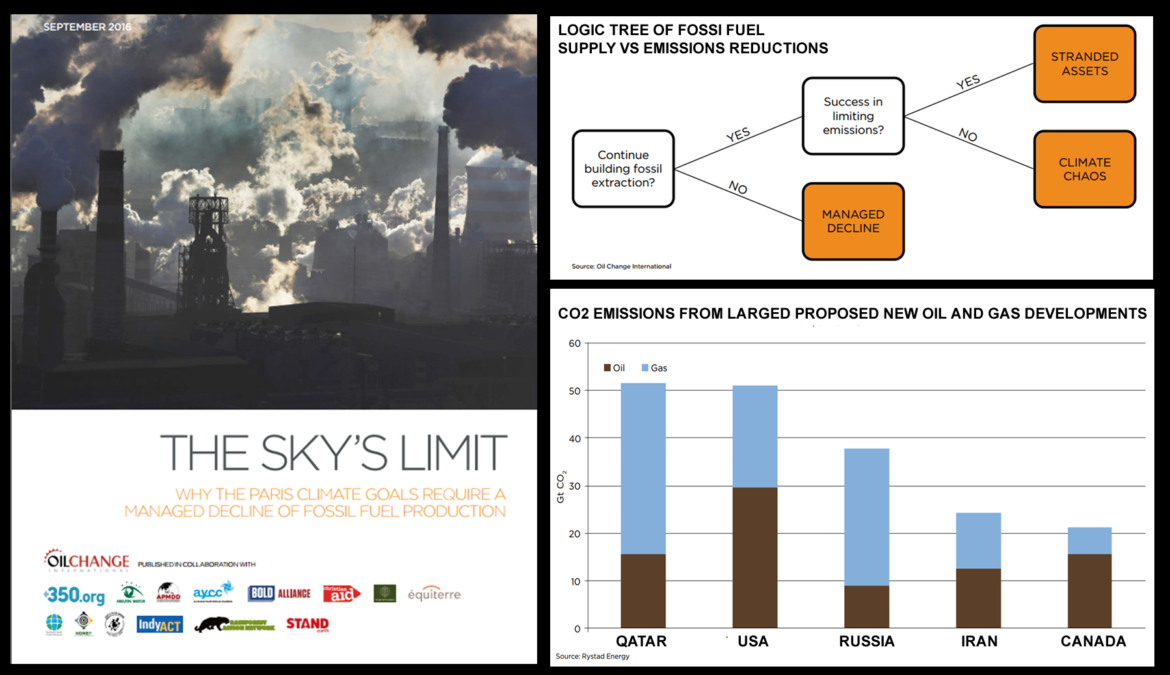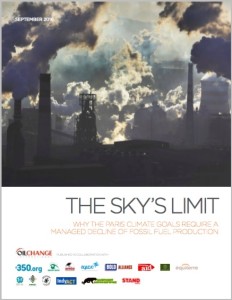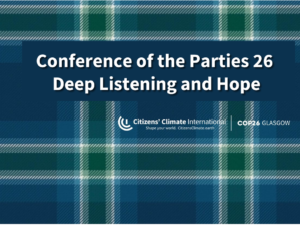
CCL Canada Education Call, November 22, 2016:
The Sky’s Limit: Why the Paris Climate Goals Require a Managed Decline of Fossil Fuel Production
To help us prepare for lobbying in Ottawa next week, Adam Scott lead us through the Oil Change International’s recent report. The data from Oil Change International is quite clear: If you understand climate change, you would not build another pipeline.
For six years CCL Canada has been lobbying for the carbon fee and dividend policy, which includes phasing out coal-fired power plants. And just this week, the government of Canada announced it would phase out coal-fired power plants. This presentation gave us a lot to think about as we prepare to lobby.
DOWNLOAD THE POWERPOINT PRESENTATION: The Sky is the Limit: November-2016-call
LISTEN TO THE CALL HERE:
Read Bill McKibben’s article in the New Republic about this September 2016 Oil Change International report.
DOWNLOAD REPORT September 2016
A new study released by Oil Change International, in partnership with 14 organizations from around the world, scientifically grounds the growing movement to keep carbon in the ground by revealing the need to stop all new fossil fuel infrastructure and industry expansion. It focuses on the potential carbon emissions from developed reserves – where the wells are already drilled, the pits dug, and the pipelines, processing facilities, railways, and export terminals constructed.
Key Findings:
- The potential carbon emissions from the oil, gas, and coal in the world’s currently operating fields and mines would take us beyond 2°C of warming.
- The reserves in currently operating oil and gas fields alone, even with no coal, would take the world beyond 1.5°C.
- With the necessary decline in production over the coming decades to meet climate goals, clean energy can be scaled up at a corresponding pace, expanding the total number of energy jobs.
Key Recommendations:
- No new fossil fuel extraction or transportation infrastructure should be built, and governments should grant no new permits for them.
- Some fields and mines – primarily in rich countries – should be closed before fully exploiting their resources, and financial support should be provided for non-carbon development in poorer countries.
- This does not mean stopping using all fossil fuels overnight. Governments and companies should conduct a managed decline of the fossil fuel industry and ensure a just transition for the workers and communities that depend on it.
Click here to download the report.
Click here to read the report’s Executive Summary in French.
Adam Scott, Senior Campaigner, adam [at] priceofoil.org
Adam Scott is a Senior Campaigner at Oil Change International. His commitment to finding solutions to the issue of climate change has motivated his involvement in a range of research and advocacy positions. After completing a degree in environmental geography at the University of Guelph, Adam worked both as an academic and non-profit environmental researcher. He gained international advocacy experience through engaging in United Nations climate change negotiations over the span of a decade. Adam worked for six years at Environmental Defence Canada, moving from managing renewable energy programs to leading campaigns to stop oil pipelines and tar sands expansion. He is based in Toronto, Canada. Follow him on Twitter: @AdamScottEnv.













